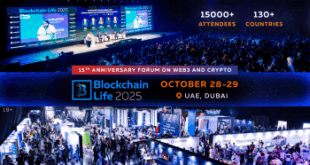Effective marketing is very tough to get right. Marketers have to juggle a lot between creative demands, channel decisions, and budget limits when creating their marketing strategy. Saying that, marketing to businesses is very different from marketing to individual customers, particularly in the edutainment space.
Furthermore, B2B marketing trends and techniques are constantly evolving to better reflect the market’s behaviour and the industry landscape at large. In the past two years, businesses and brands have had to review popular practices in B2B marketing in order to keep up with the dramatic shifts in the global economy caused by the pandemic. Now, they are relying significantly on emerging trends in the B2B space to carry them through to the next stage. Some of these include –
Event marketing
Event marketing strategy sees companies host certain events where the audience can interact with their brand. Sponsoring, hosting, and attending events – either in person or online – boosts the brand’s exposure and generates some qualified leads. Successful B2B events can be in many forms, including classes, workshops, parties, networking events, exhibitions, professional conferences and webinars on topics of interest to your target B2B consumers, where you can introduce them to your products and services and even learn new information.
Experiential marketing
Audiences are now seeking authentic experiences with brands and businesses. They like to buy from brands that share the same values, philosophies and vision as them. In fact, they are also willing to pay more for a deeper connection with brands and businesses. Which means brands and businesses, in turn, have to evolve their strategy from informing to delighting their audiences with immersive storytelling. And this is where experiential marketing comes into play. Experiential marketing plays a paramount role in forging innovative and memorable consumer experiences to create deep emotional connections between the B2B consumers and the brands.
Also called engagement marketing, experiential marketing is a process of immersing and engaging audiences in unique experiences. Although similar to event marketing, experiential marketing sees brands and businesses create positive experiences that go beyond hosting events and having a long-lasting impact on the minds of the audience who are a part of it. Furthermore, 76% of B2B marketers agree that experiential and event marketing boosts brand awareness.
Brand building
Your brand’s voice is a crucial part of connecting with B2B consumers, personalising their experience with the products and services that you are offering, and stimulating their trust in your business solutions. Over the recent years, edutainment brands have used brand voice to craft every email, web copy, video script, social media caption, piece of long-form content, and more which worked well with their target audience.
Social media marketing
To attract B2B customers on social media, edutainment brands adopted practices that are specific and crucial to a business-oriented audience. These practices include – leveraging the power of videos (for industry highlights, product demonstrations, tutorials, about us stories, and business building strategies), tailoring posts to each platform, live streaming, and partnering with micro-influencers in one’s niche in order to gain access to their targeted and loyal followers.
Developing content to generate positive customer response
Content marketing is also an effective technique that worked well in the edutainment space to reach B2B audiences and they can be of any form such as podcasts, AI-powered content, VR and AR-powered content etc. Focused content (like educational content on important industry trends, videos explaining how your products/ services can help B2B consumers, and consumer testimonials) can help to build trust with decision makers, increase brand awareness, and also lay the foundation for marketing efforts on other channels.
Paid advertising
A brand simply can’t rely on attracting target customers’ attention when millions of other brands are competing at the same time. This is where paid advertising comes into play. It helps to increase conversions, and engagements, build awareness, boost sales and lead generation and also ensures that your content reaches the greatest number of targeted people possible. When this technique is paired with other marketing tactics such as social media and B2B PR, your brand can get to the forefront of your industry.
Marketing isn’t effective at all unless you keep your audience in mind. If your buyer persona is not properly targeted, then promotions and advertisements will all go in vain. To survive as a marketer in the industry, it’s crucial that you stay on top of trends and develop marketing strategies that answer objections and are easy and authentic.
– Article inputs by Tarandeep Singh Sekhon, Marketing Director of KidZania India
 Newspatrolling.com News cum Content Syndication Portal Online
Newspatrolling.com News cum Content Syndication Portal Online






